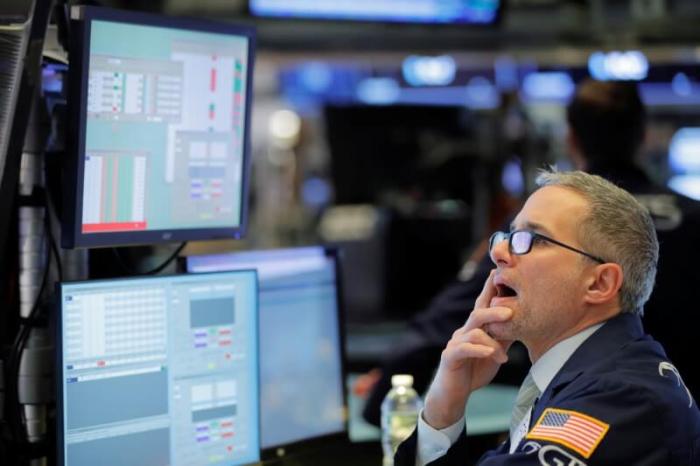By Rodrigo Campos and April Joyner
NEW YORK (Reuters) – World stock markets gained back some ground on Wednesday as investors took heart from measures to curb the spread of a flu-like virus from China, while oil prices tumbled on a forecast for a market surplus.
Worries about contagion of the coronavirus and its effect on the global economy, particularly as millions in China travel for upcoming Lunar New Year festivities, had knocked the world’s top equity markets off record peaks.
Deaths from the coronavirus rose to 17 on Wednesday, with more than 540 cases confirmed. Cases of the previously unknown virus have emerged as far away as the United States.
The outbreak revived memories of the Severe Acute Respiratory Syndrome (SARS) epidemic in 2002-03, a virus outbreak that killed nearly 800 people worldwide and hit Hong Kong’s economy particularly hard.
But China’s response to the coronavirus outbreak, including some travel restrictions and regular updates by the government, reassured some investors.
“The call here is not that the virus is done or nipped in the bud by any means,” said Kay Van-Petersen, global macro strategist at Saxo Capital Markets. “But there have been no big further reported outbreaks, and the response from the Chinese authorities has been very, very positive.”
On Wall Street, the benchmark S&P 500 stock index ended nominally higher after touching a record earlier in the session.
Among currencies, the safe-haven Japanese yen China’s coronavirus had some lingering effects on oil markets. Concerns of dropping demand, along with a forecast of a market surplus from the International Energy Agency, pushed down crude prices. Brent crude The Dow Jones Industrial Average <.DJI> fell 9.77 points, or 0.03%, to 29,186.27, the S&P 500 <.SPX> gained 0.96 points, or 0.03%, to 3,321.75, and the Nasdaq Composite <.IXIC> added 12.96 points, or 0.14%, to 9,383.77. U.S. 2-year, 10-year and 30-year Treasury yields were little changed. Earlier, they hit two-week lows after the Bank of Canada held interest rates steady and opened the door for possible easing amid an economic slowdown, rekindling worries about global growth. “For Canada to sort of change its outlook fairly quickly opens up the possibility that easing could occur elsewhere too,” said Jim Vogel, senior rates strategist at FHN Financial in Memphis. Benchmark 10-year Treasury notes The pan-European STOXX 600 equity index <.STOXX> lost 0.08%, and MSCI’s gauge of stocks across the globe <.MIWD00000PUS> gained 0.10%. Emerging market stocks rose 0.58%.
The dollar index <.DXY> fell 0.01%, with the euro The Japanese yen strengthened 0.01% versus the greenback at 109.88 per dollar, while sterling Spot gold Graphic: Global currencies vs. dollar – http://fingfx.thomsonreuters.com/gfx/rngs/GLOBAL-CURRENCIES-PERFORMANCE/… (Reporting by Rodrigo Campos and April Joyner in New York; Additional reporting by Devika Krishna Kumar, Gertrude Chavez-Dreyfuss and Saqib Iqbal Ahmed in New York, Sruthi Shankar in Bengaluru and Noah Browning and Marc Jones in London; Editing by Andrea Ricci and Leslie Adler)
























